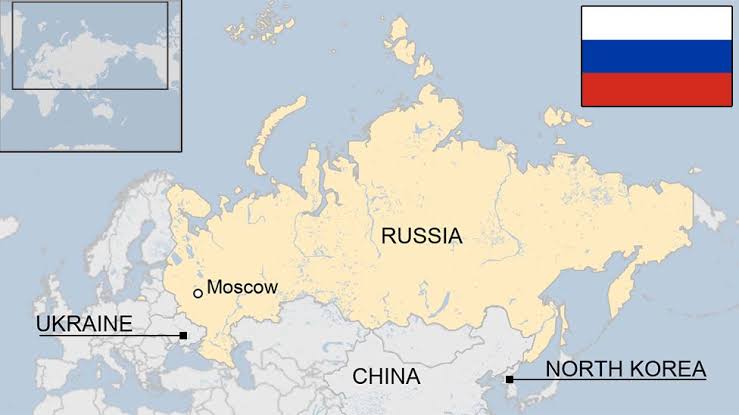Opinion
In Russia, the shift in public opinion is unmistakable (IN FAVOUR OF PUTIN)
How Russia has defied the West to boost Economy in the face of sanctions
By Mikhail Zygar
Mikhail Zygar, a Russian writer living in exile, is the author of “All the Kremlin’s Men: Inside the Court of Vladimir Putin” and “War and Punishment: Putin, Zelensky, and the Path to Russia’s Invasion of Ukraine.”
Twenty months ago, after Vladimir Putin had launched his full-scale invasion of Ukraine, many high-ranking Russians believed that the end was near. The economy faced disaster, as they saw it, and the Putin regime was on the brink of collapse.
Today, the mood has changed dramatically. Business leaders, officials, and ordinary people tell me that the economy has stabilized, defying the Western sanctions that were once expected to have a devastating effect. Putin’s regime, they say, looks more stable than at any other time in the past two years.
Restaurants in Moscow are packed. “The restaurant market is growing, not only in Moscow, but throughout Russia, facilitated by the development of domestic tourism,” says a top Russian restaurateur. “And the quality of food is also changing for the better. Sure, panic struck the industry in early 2022, but it quickly passed.”
Real estate prices are rising, and construction is booming. At the beginning of 2022, most global brands left Russia, leaving empty storefronts in malls and streets. Now, the gaps have been filled by Russian counterparts, as the chief executive of one retail network told me. Putin’s spokesman Dmitry Peskov recently admitted that the Russian economy had faced “a threat of collapse” in the months after the invasion, but says that the country is now over the worst.
Before the war, Russian business executives generally kept their savings in the West. They also bought real estate, properties that sometimes served as second homes for their families. Now, as one Russian oligarch told me, that door has been slammed shut, sparking an investment boom back at home. The only option left is for tycoons to put their money into domestic investments. Major building projects are now underway in places ranging from the Altai Mountains in eastern Siberia to Karelia on the border with Finland. In September, Bloomberg reported that Russian oligarchs had returned at least $50 billion to Russia since the invasion. According to those I interviewed, that estimate is very modest.
Russian industry is booming. Defense companies are leading the way, of course, with some expected to show growth of more than 30 percent this year. Moscow is continuing to sell oil and gas to foreign buyers — not only China and India, but European countries, too; most of these customers simply purchase Russian petroleum through intermediaries such as Turkey, Azerbaijan or Egypt. The West might have succeeded in cutting most of its ties with Russia, but Moscow’s trade with the rest of the world is picking up.
The Soviet Union’s Cold War isolation has not repeated itself. Putin’s Russia can get many of the supplies it needs from China. For many Moscow residents, perhaps the most striking change on the streets is the near-wholesale replacement of Western cars with Chinese models.
After the invasion, the International Monetary Fund estimated that the Russian economy would fall by 2.3 percent in 2023. In January 2023, the IMF changed its forecast, predicting growth of 0.3 percent. It changed its forecasts at least two more times during the year; in October, it finally settled on a figure of 2.2 percent.
The sanctions have left Russian business leaders with no option but to stay at home. Even those who wanted to remain in the West and help Ukraine were punished — such as the banker Oleg Tinkov, who condemned the war and even renounced his Russian citizenship, but was hit by sanctions nonetheless. (He finally succeeded in getting them lifted only a few months ago.) The tycoon Mikhail Fridman, the co-founder of Russia’s largest private bank, cautiously criticized the war, only to find himself briefly arrested by the British authorities and hit by American sanctions. A few weeks ago, Fridman gave up, initially leaving his London home for Tel Aviv, then finally returning to Moscow.
Fridman’s return had a symbolic effect on the Russian business elite: It convinced them that the West sees them only as enemies. That means the only way to survive is to cooperate with the Kremlin, because Putin, unlike the West, has not yet punished any business leaders, even those who spoke out against the war.
It is the war in the Middle East, however, that has convinced Russian business leaders that Putin is winning. In their view, public opinion in the West is shifting away from Ukraine. Putin, meanwhile, will strengthen his standing in the eyes of the Global South. His claims that the United States is to blame for the crisis in Gaza resonate with millions of people around the world.
As for the war, the authorities are finding recruits by focusing their efforts on the poorest, most depressed regions of Russia and promising salaries 10 times the average. Putin still has money in his coffers, meaning that he is not going to run out of cannon fodder anytime soon.
Russian elites are well aware that the regime still has many weaknesses. Russia still can’t produce many of the goods it needs, and getting them from its friends is complicated. One businessman told me that airlines will soon have to close because of a lack of spare parts for their passenger planes.
Even so, the shift in public opinion is unmistakable. Twenty months ago, Russian elites were convinced that the long-unassailable Putin had finally overplayed his hand, and that he would likely have to pay a harsh price for his miscalculation.
Now, most of them seem to have changed their minds. The Russian president, as they see it, has shown that he’s here to stay.
washingtonpost.com
©️ The Washington Post

